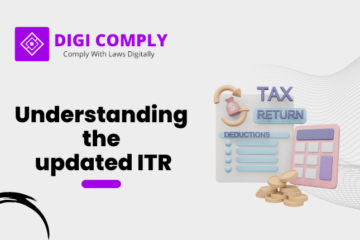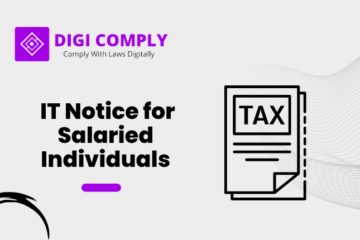In accordance with the corporate tax law set forth by the Authority, a taxable individual has the opportunity to avail certain deductions on their income during a specific tax period. However, to qualify for these deductions, the individual must meet the prescribed requirements outlined by the law.
- A deduction refers to a specific amount that can be subtracted from the taxable income during the calculation phase of tax liability.
- As a result, this deduction reduces the overall tax amount owed by the taxable person to the government.
- It is important to note that these tax deductions are legally sanctioned incentives provided by the law. The UAE corporate law, specifically Article 28, delves into the concept of deductible expenditure.
- One of the key limitations on corporate tax deductions relates to the general interest deduction. This is detailed in Article 30 of the UAE corporate tax law.
- According to this provision, a taxable individual can claim a general interest deduction, amounting to a maximum of 30% of their earnings before EBITDA (Earnings Before Interest, Taxes, Depreciation, and Amortization). This deduction applies to the net interest expenditure.
- To calculate the net interest expenditure, one must subtract the taxable interest income received by the taxable individual from the interest expenditure incurred during the tax period.
- It is important to consider that the taxable interest income should also include any net interest expenditure carried forward from previous periods.
- Be aware that any disallowed interest expenditure, as per the provisions of the UAE corporate tax law, should not be included in the deductions.
Limitations on Deducting Net Interest Expenditure for Taxable Individuals
A taxable individual is allowed to claim deductions for their net interest expenditure, but there are certain restrictions in place. During a specified tax period, they can deduct a maximum of 30% of their net interest expenditure from their EBITDA (Earnings Before Interest, Taxes, Depreciation, and Amortization). However, this deduction cannot be applied to the exempt income as defined in Article 22 of the UAE corporate tax law.
Threshold to Avoid General Interest Deduction Limitation
To avoid falling under the general interest deduction limitation rule, the taxable individual’s net interest expenditure for the relevant tax period must not exceed the threshold set by the Minister. If their net interest expenditure remains within this threshold, the general interest deduction limitation rule will not be applicable.
Carrying Forward Disallowed Net Interest Expenditure
If certain portions of the net interest expenditure are disallowed for deduction in a particular tax period, there is a provision to carry forward these disallowed amounts. This can be done for up to the next 10 tax periods. However, it is crucial to adhere to the specified order during the carry-forward process.
Exemption from Interest Capping Rules
It’s important to note that not everyone is eligible for claiming deductions on net interest expenditure. Specifically, the following entities and individuals are not applicable for interest capping rules:
- Insurance providers
- Banks
- Natural persons conducting business activities within the state
- Any other entity or individual specified by the Minister
Individuals associated with ownership or control are required to consolidate all their financial statements in accordance with accounting standards. The Minister has the authority to determine whether such a taxable person qualifies for the deduction of net interest expenditure or not.
The specific rule for limiting interest deduction:
The corporate tax law in the UAE includes provisions regarding the deduction of interest expenditure for a taxable person who has taken a loan from a related party.
Exception to interest deduction in the case of a related party:
If a taxable person has borrowed from a related party and any of the following conditions are met, they will not be eligible for an interest expenditure deduction:
- Profits or dividends have been paid to the related party.
- There has been a capital contribution to the related party.
- The taxable person has transferred their shares to the related party with the intention of the latter making a share capital return, repurchasing the shares, reducing capital, or being involved in redemption.
- The ownership stake is acquired from someone who will become a related party after the acquisition.
However, according to corporate tax law, if the taxable person can prove that any of the above actions were not taken to gain a corporate tax advantage, they may still be eligible for interest expenditure deductions. Additionally, if the interest expenditure falls under a foreign jurisdiction at a rate of 9%, it will not be considered a corporate tax advantage under the law.
Entertainment Expenditure and Deductible Expenses in UAE Corporate Tax Law
Entertainment expenditure encompasses all costs associated with hosting events for the taxable person’s suppliers, clients, and others. This includes expenses for transportation, meals, venues, accommodations, equipment, admission fees, and any other expenses specifically recognized as entertainment costs by the Minister.
- There are certain limitations on claiming deductions for entertainment expenditures.
- Under Article 28 of the UAE corporate tax law, a taxable person is eligible to claim deductions of up to 50% for entertainment expenses incurred during a tax period.
- These deductions can be claimed for activities related to amusement, entertainment, or recreation during the relevant tax period.
- On the other hand, some expenses are considered non-deductible according to the UAE corporate tax law, as outlined in Article 33. The following transactions are not eligible for any deduction:
- Corporate tax is levied on a taxable person by the UAE corporate tax law.
- Gifts are given to a corporate entity that does not qualify as a Public Benefit Entity.
- Fines and penalties, except those resulting from contractual violations.
- Donations made to a corporate entity not classified as a Qualifying Public Benefit Entity.
- Withdrawals by a natural person as per Clause 3 of Article 11 in the UAE Corporate Tax Law, including those from Unincorporated Partnerships resulting from a business.
- Illegal payments and bribes.
- Tax levied on a taxable person’s income if they are situated outside the UAE.
- Grants are given to a corporate entity not qualifying as a Qualifying Public Benefit Entity.
- Payments made to the taxable person’s owner, such as dividends.
- Input value-added tax eligible for reimbursement, paid by the taxable person.
- Payments related to profit distributions to the owner.
- Any other expenditure not falling under the above categories but recommended by the Minister.
To summarize, taxable individuals must be aware of the 50% deduction limit for entertainment expenses while ensuring compliance with the list of non-deductible expenditures specified in the UAE corporate tax law.
If You have any queries then connect with us at support@legalsuvidha.com or info@digicomply.in & contact us & stay updated with our latest blogs & articles





